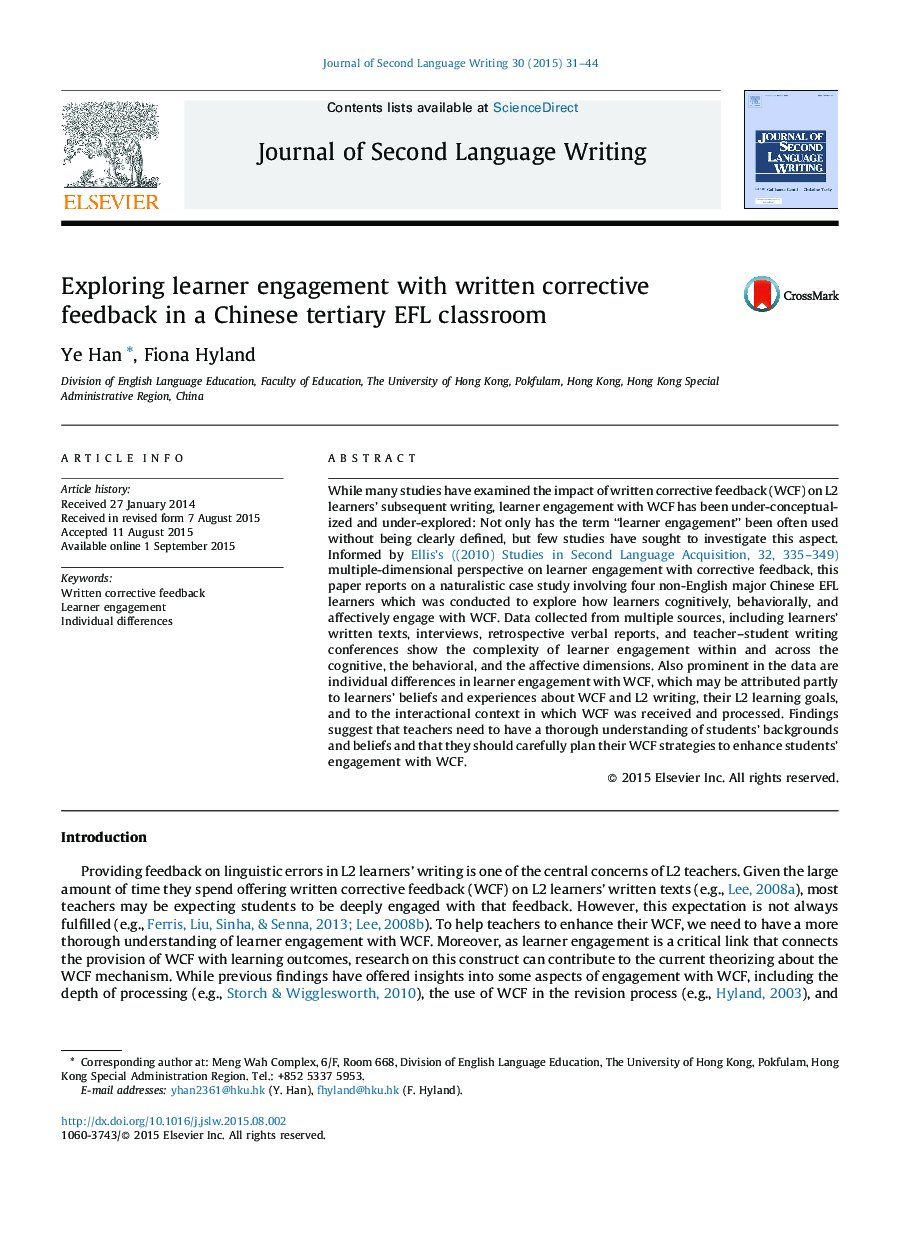| کد مقاله | کد نشریه | سال انتشار | مقاله انگلیسی | نسخه تمام متن |
|---|---|---|---|---|
| 363948 | 620940 | 2015 | 14 صفحه PDF | دانلود رایگان |
• Four Chinese university students’ cognitive, behavioral, and affective engagement with teacher written corrective feedback was investigated.
• The effectiveness of revision was inconsistent with the depth of processing in some student cases, indicating the complex relationship between cognitive and behavioral engagement.
• Individual differences were found in each of the cognitive, the behavioral, and the affective dimensions of engagement with WCF.
• These differences may be due to learner beliefs and goals, and to the interactional context in which WCF was received, processed, and used.
While many studies have examined the impact of written corrective feedback (WCF) on L2 learners’ subsequent writing, learner engagement with WCF has been under-conceptualized and under-explored: Not only has the term “learner engagement” been often used without being clearly defined, but few studies have sought to investigate this aspect. Informed by Ellis's ((2010) Studies in Second Language Acquisition, 32, 335–349) multiple-dimensional perspective on learner engagement with corrective feedback, this paper reports on a naturalistic case study involving four non-English major Chinese EFL learners which was conducted to explore how learners cognitively, behaviorally, and affectively engage with WCF. Data collected from multiple sources, including learners’ written texts, interviews, retrospective verbal reports, and teacher–student writing conferences show the complexity of learner engagement within and across the cognitive, the behavioral, and the affective dimensions. Also prominent in the data are individual differences in learner engagement with WCF, which may be attributed partly to learners’ beliefs and experiences about WCF and L2 writing, their L2 learning goals, and to the interactional context in which WCF was received and processed. Findings suggest that teachers need to have a thorough understanding of students’ backgrounds and beliefs and that they should carefully plan their WCF strategies to enhance students’ engagement with WCF.
Journal: Journal of Second Language Writing - Volume 30, December 2015, Pages 31–44
